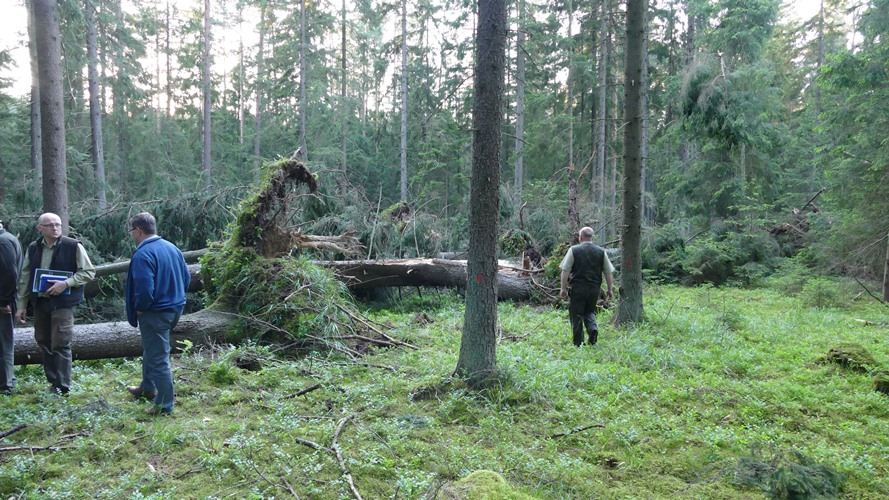UNESCO urges Poland to immediately stop logging in the old-growth forests of Białowieża World Heritage site, following IUCN’s advice
Kraków, Poland, 05 July 2017 (IUCN) – The UNESCO World Heritage Committee has adopted a decision today urging Poland to immediately halt all logging and wood extraction in the old-growth forests of Białowieża. The decision follows the advice of the International Union for Conservation of Nature (IUCN) – the official advisory body on nature to UNESCO’s World Heritage Committee, which meets this week in Kraków, Poland.

Białowieża Forest, Poland-Belarus - IUCN carried out an advisory mission in Poland in 2016
Photo: IUCN / Hervé Léthier
IUCN is expected to carry out a mission to assess whether the site’s unique values, which include intact ecological processes, are at risk. Poland has been requested to submit a report on the conservation of the site by December 2018. Should danger to the site’s Outstanding Universal Value be confirmed, Białowieża will be considered for inscription on the List of World Heritage in Danger in 2019.
“The old-growth forests of Białowieża are one of the main reasons why it was inscribed on the UNESCO World Heritage list,” said Tim Badman, Director of IUCN’s World Heritage Programme. “It is critically important – and a global responsibility – that the Outstanding Universal Value of this ancient forest be preserved for future generations. IUCN looks forward to engaging with Poland to carry out a monitoring mission to Białowieża, in order to assess the situation and identify and agree on adequate measures to conserve the site.”
Poland has been undertaking wood extraction and logging in Białowieża Forest. The site, which is protected under the European Union’s Natura 2000 initiative, was the subject of European Commission’s announcement of an infringement procedure against Poland, which noted that increased logging in Białowieża is likely to cause irreparable biodiversity loss.
"IUCN remains concerned with the activity in Białowieża and will work with Poland to find the right management solutions to preserve this unique European site," said Luc Bas, Director of IUCN’s European Regional Office.
Białowieża Forest was inscribed on the World Heritage List in 1979 as one of the first World Heritage sites. The site was then extended twice, in 1992 and 2014. Today, it covers a total area of 141,885 hectares across the Polish-Belarusian boarder. It is one of the few remaining primeval forests on the European continent. It is home to the iconic European Bison and hosts more than 250 bird and over 12,000 invertebrate species.
Editor's notes
Natural World Heritage sites are globally recognised as the world’s most important protected areas, inscribed on the UNESCO World Heritage List for their unique natural values, such as the scale of natural habitats, intactness of ecological processes, viability of populations of rare species, as well as exceptional natural beauty. One in five World Heritage sites is natural.
IUCN is the advisory body on nature to UNESCO’s World Heritage Committee. Working closely with IUCN's World Commission on Protected Areas (WCPA), IUCN evaluates sites nominated to the World Heritage List, monitors the conservation state of listed sites, promotes the World Heritage Convention as a leading global conservation tool, and provides support, advice and training to site managers, governments, scientists and local communities.
The List of World Heritage in Danger is used by the Committee to facilitate emergency conservation action and international assistance to support severely threatened World Heritage sites. A total of 55 sites are currently listed as ‘in danger’, including 18 natural sites. These include iconic places such as Virunga National Park in DR Congo, the Tropical Rainforest Heritage of Sumatra and Everglades National Park in the USA.
For more information or to set up interviews please contact:
Célia Zwahlen, IUCN World Heritage Programme, célia.zwahlen@iucn.org, +41 22 999 07 16
Ewa Magiera, IUCN Media Relations, ewa.magiera@iucn.org, +41 76 505 33 78
